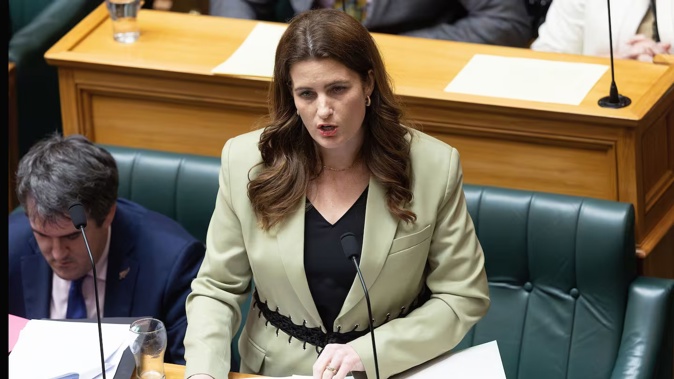
The International Monetary Fund (IMF) is urging the Government to ensure it can pay for its tax cuts without borrowing more.
The organisation is wary of the fact New Zealand is still battling inflation, so fears that putting more money into the economy, without taking an equivalent amount out, could exacerbate the problem.
“The planned personal income tax relief is targeted predominantly at low and middle-income earners and families with children, which have a higher propensity to spend,” the IMF said in report it prepared following a routine review of New Zealand.
“To avoid any upside pressure to inflation it is important to calibrate the funding, timing, and the parameters of this tax relief to be fiscally neutral.”
Questions are currently being raised by various commentators over whether the Government can fund its promised tax cuts without borrowing more.
More will be known when Finance Minister Nicola Willis releases her Budget Policy Statement on March 27, ahead of the Budget on May 30.
The IMF recognised the Government’s committed to cutting public sector jobs and taking a prudent approach towards spending.
It said New Zealand’s government debt is “sustainable” at current levels.
However, it noted that following the onset of Covid-19, government debt in New Zealand rose more rapidly than it did in other advanced economies, “and will continue its upward trajectory absent decisive consolidation”.
The IMF suggested the Government address New Zealand’s “structural” fiscal challenges to “strengthen credibility and preserve the policy space to respond to shocks”.
“The focus should be on spending areas which have increased the most since the pandemic, such as the wage bill, transfers, and social benefits,” the IMF said.
“Outlays on high-value infrastructure and support to the most vulnerable should be protected.”
As it has done in the past, the IMF called for the introduction of a comprehensive capital gains tax, combined with a land value tax, and changes to corporate income tax.
“Tax policy reforms are needed to promote investment, and productivity growth, increase the progressivity of income tax, and mobilise additional revenue in response to long-term fiscal challenges,” it said.
The IMF was satisfied with where the Reserve Bank had set the Official Cash Rate, saying monetary policy was “appropriately tight and should remain restrictive to ensure a timely return of inflation to target”.
It said New Zealand needed more houses, as affordability issues are “severe”, despite prices falling from their Covid-era peaks.
“Additional reforms of land use restrictions are essential for further construction,” the IMF said.
“Moreover, investment in transport and water infrastructure is needed to support urban development. This requires local councils to address funding and capacity constraints.”
The IMF also pulled New Zealand up on its lagging productivity growth, which it said is making the country less competitive.
“Public investment in research and development, new infrastructure, and maintenance of the existing public capital stock are critical,” it said.
“A more predictable infrastructure pipeline would encourage construction companies to expand implementation capacity…
“Further immigration together with efforts to improve education outcomes and skills matching, could address skills shortages and boost productivity.”
The organisation was worried about New Zealand’s education standards slipping, and educated people.
“While the population is highly educated, New Zealand lags other advanced economies in terms of post-graduate degrees,” it said.
The other area the organisation raised concern over was climate change.
It said more investment was needed in adaptation infrastructure, while authorities needed to limit residential zoning in high-risk areas.
It said “significant reforms” were needed to meet commitments made in the Paris Agreement.
The IMF said New Zealand needed to reduce the number of units available under the Emissions Trade Scheme, price agricultural emissions, and better incentivise polluters to reduce their emissions under the scheme.
Jenée Tibshraeny is the Herald’s Wellington business editor, based in the Parliamentary Press Gallery. She specialises in government and Reserve Bank policymaking, economics and banking.
Take your Radio, Podcasts and Music with you









